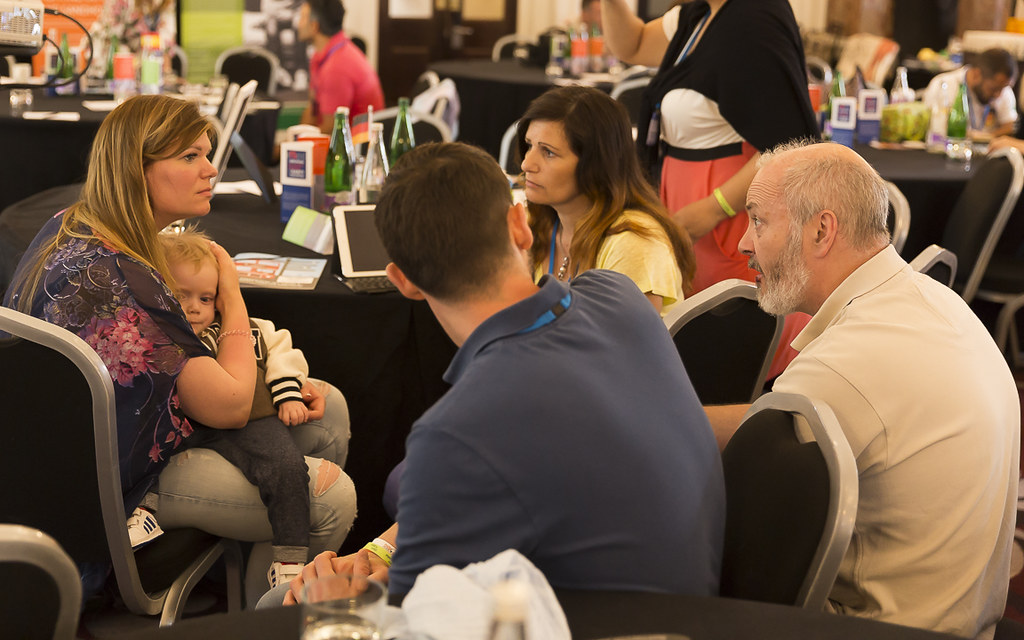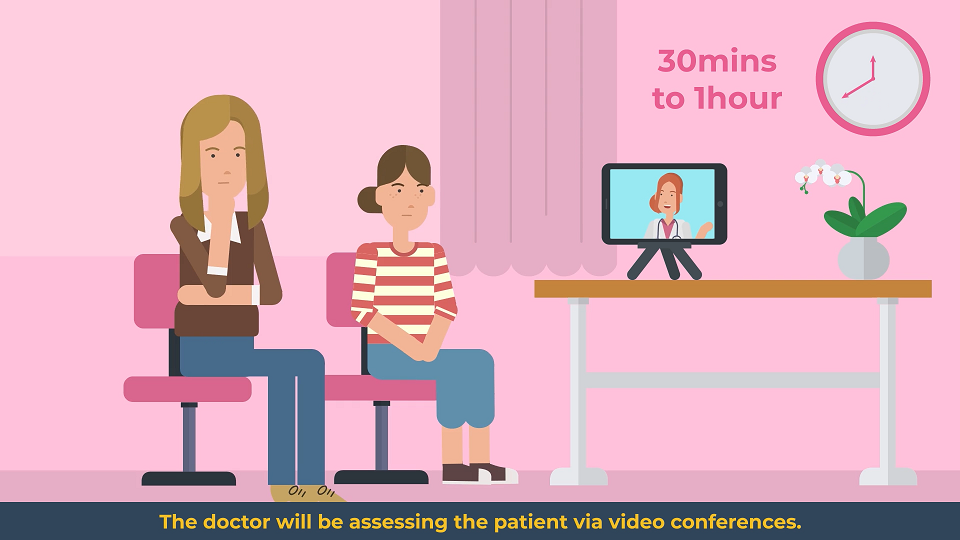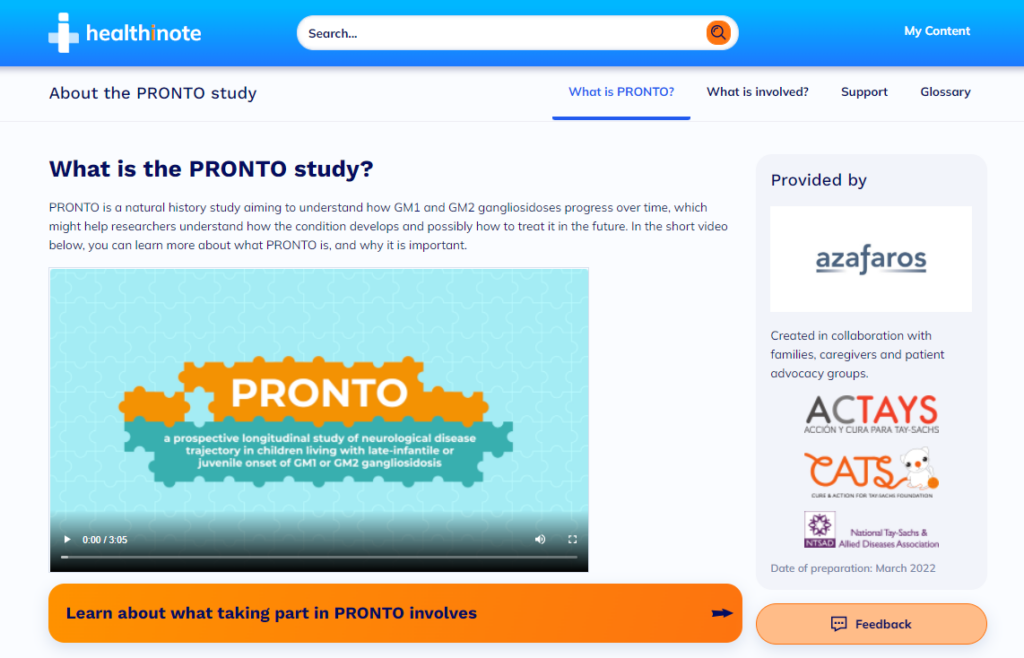The benefits of involving patients in the co-creation of educational materials for use in clinical trials are vast, yet it is still an underused strategy in many study plans. As Azafaros becomes the first company to create a digital participant education programme for use in a paediatric natural history study, Louis Stokes, User Insights Researcher from Cognitant explains what led the Dutch pharmaceutical company to develop the programme and the value it has added.
Azafaros, a company that strives to offer hope for patients living with severe rare genetic diseases and their families, are at the forefront of innovation, breaking new ground to build a pipeline of disease-modifying therapeutics. It is this innovative outlook and a desire to find new, and improved, ways of working that led to Azafaros partnering with us at Cognitant to develop a digital participant education programme.
When planning their new natural history study, Azafaros wanted to devise a better way of recruiting patients and supporting them throughout the duration of the trial. The participant education programme launched as part of the PROspective Neurological Disease TrajectOry study (or PRONTO), which is investigating the disease progression of GM1 and GM2 gangliosidoses (also known as Tay-Sachs and Sandhoff disease).
Challenges of recruiting into natural history studies
Natural history studies in rare diseases are an important tool for developing an understanding of disease progression. In fact, the FDA introduced draft guidance in 2019 that outlines the benefits of natural history studies when planning controlled trials of investigational drugs to treat rare diseases. However, recruitment into these studies is often a challenge as, naturally, rare disease cohorts are smaller and more dispersed and patient retention in long term studies can prove difficult.

Recruitment is often via clinicians who do not always understand the information that patients and their caregivers need when deciding whether to take part in a trial, and the information they supply is often not provided in a suitable format. Patients can often be reluctant if inadequate details are provided regarding what participation will entail.
These challenges are often amplified for those studies involving children, as parents and caregivers balance the desire to seek treatments for rare diseases with the urge to protect their child from further appointments and investigations. It is, unfortunately, all too common for prospective participants to lack the motivation to sign up to trials when there isn’t a chance of trying a new therapeutic, which is the case in a natural history study. It is, therefore, vital that clinicians are able to share trusted, validated information in a simple and effective way, so that patients and their caregivers know exactly what they are consenting and committing to.
The benefits of co-creation
Co-creation with patients has been demonstrated to be an effective way of developing patient information in other settings. It has proven effective in empowering patients to better manage their own health, leading to better health outcomes, improved patient satisfaction and more efficient resource use, while increasing advocacy and trust in pharmaceutical companies. So, for Azafaros, it was a logical step to involve patients, caregivers and advocacy groups in the creation of educational materials for the PRONTO study.
At Cognitant, our mission is to empower people with clear, reliable health information – to create a world where everyone understands their health and treatment. We passionately believe that all health information and resources should be created with patients, which is particularly important if the material is being created for children.
Azafaros approached us to help develop a suite of educational materials using our tried and tested co-creation model. They wanted resources that were easy to understand, memorable and impactful so that the patients and their caregivers could fully understand what the PRONTO study was investigating and what participation involved.
User-centred design approach
The Cognitant co-creation model adopts a user-centred design approach that works with the participants, and other stakeholders, to ensure that any material produced meets their educational needs. To do this, we run co-creation workshops to understand what participants want and need from the programme before sharing design concepts and seeking feedback on a whole range of artefacts, ranging from style choices and colour schemes to story flow and how easy it is to understand the information we are presenting. This is a valuable opportunity to ensure that we have heard participants correctly and have interpreted learnings from the workshops in a way that is meaningful and generalisable to wider patient communities.
This careful co-creation process involves working with clinicians and patients and is accredited by the Patient Information Forum, demonstrating the standards we adhere to.
In the case of the PRONTO study, we also worked with a group of international patient advocacy groups from Europe and the US; Accion y Cura para Tay Sachs (ACTAYS), Cure & Action for Tay Sachs Foundation (CATS), the National Tay Sachs and Allied Diseases Association and the Cure GM1 Foundation.

In fact, during the workshops it became apparent that the perspectives of healthcare professionals differed in comparison to what was important for families. For example, nurses and doctors were focused on emphasising that the study did not involve an investigational treatment and were keen for the resource to clearly communicate the aims of the study, as this is usually a point of frustration for families. Caregivers and parents of children affected by Tay-Sachs and Sandhoff disease were more interested in the pragmatic and logistical issues raised by participating in a natural history study, such as the inclusion criteria and the time commitment involved. Nationality also influenced information needs, as Spanish groups wanted less information to be shared with patients, US groups wanted to share everything, and UK groups were somewhere in the middle.
Through productive and collaborative discussion, the educational programme was refined to produce something that met everyone’s key needs. Time in the workshop was dedicated, for example, to discussing differences of opinion with each group, including the pros and cons of various approaches. Individual patients and their caregivers were also asked to feed their opinions into each topic.
The result of the co-creation process was a series of short educational and interactive animations to support families and caregivers enrolled in the study. The videos, which typically last one to two minutes, explain what a natural history study is, and what participation will entail, including information about the study assessments. They are provided in a range of languages to maximise the impact that the resources can have.

The right information at the right time
The videos will not replace traditional participant information packs; they are designed to complement them. The standard patient information packs that participants are often provided with aren’t always accessible to everyone and so the videos offer an alternative way of conveying some of the important information. As the brain processes visual information 60,000 times faster than text, presenting information in video format also promotes accessibility.
The videos are hosted in a digital knowledge centre, which provides an area for clinicians and researchers to be able to send curated content directly to participants and caregivers. This means that the videos can be viewed, and shared, away from the clinic, giving time for people to view, and digest them, in their own time.

The knowledge centre also hosts other information including where to seek further support and a glossary defining key terms that may be unfamiliar. It has a built-in feedback module that enables users to provide feedback about the content that they are viewing, so that we can understand how to improve in the future. This feedback also provides us with an evidence-base of how effective the tool is to improving patient understanding and will hopefully validate the findings of our co-creation process.
Educating and empower trial participants
In working with Azafaros in this way we have built content that will educate and empower individuals and their families, and hopefully boost participant retention rates throughout the course of the research. While we have already , the impact of this digital intervention will be formally assessed through patient feedback and engagement metrics.
Curating and sharing effective and understandable patient information is critical, especially in rare disease populations as they account for a fifth of all studies posted on clinicaltrials.gov. We hope that Azafaros will act as a trailblazer where other pharmaceutical companies will follow suit and the development of co-created digital education programmes will become the norm.
We believe that, by giving people the right information, at the right time, and in the right format, we can help patients to have a deeper understanding of their involvement in clinical trials. This will empower them to make informed choices, in turn reducing the delays and costs associated with poor participation retention rates – and ultimately help to support the development of new therapeutics for rare diseases.
About the author
As a User Insights Researcher at Cognitant, Louis Stokes is responsible for conducting mixed-methods research to gain an understanding of the information needs of a variety of stakeholders – including patients, caregivers, and healthcare professionals. Following an established co-creation process, Louis works with internal teams to iteratively develop content that provides the right information, in the right format, at the right time. Louis is also an academic researcher undertaking a PhD in Neuroscience, where his research focuses on the impact of rare disease syndromes.
Cognitant
Looking to empower people with health information for better patient outcomes?
Related News
Kidney Research UK invests in Healthinote patient education platform which could support >15m people with long term health conditions
April, 2025
Oxford, January 2025 – Kidney Research UK, the leading charity dedicated to kidney health, has made a significant investment in Cognitant Group Ltd, a leading...
Webinar Insights – Compliance vs Patient Engagement: Can They Co-Exist?
April, 2025
Is compliance really a barrier to meaningful patient engagement in pharma, or are outdated myths holding us back? In this recent webinar, Dr Tim Ringrose,...
Funding awarded to innovations that support early diagnosis and rehabilitation of Stroke patients
March, 2025
SBRI Healthcare, an Accelerated Access Collaborative (AAC) initiative, in partnership with the Health Innovation Network, has awarded £2.5 million for the development of five innovations...